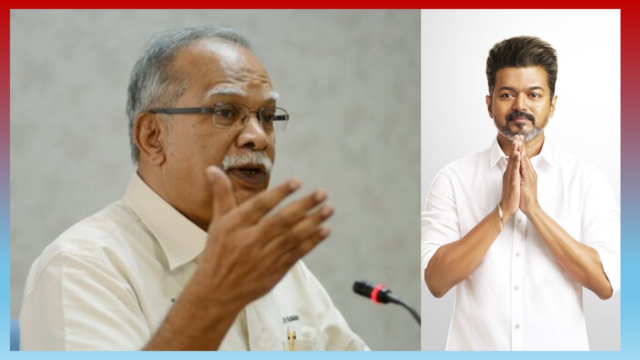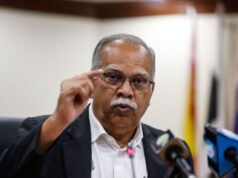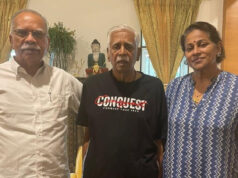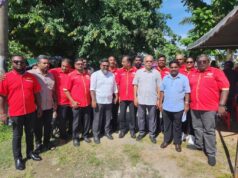

Chairman, Urimai Party
Cinema actor “Thalapathy” Vijay’s entrance into Tamil Nadu politics
The entry of Tamil cinema actors into politics is hardly new. Legendary movie icons like the late M.G. Ramachandran (MGR) and Jayalalithaa set the precedent decades ago.
However, movie stardom does not guarantee political success, as the experiences of Kamal Haasan and Rajinikanth have shown. Both attempted to make political inroads but ultimately withdrew.
Rajinikanth, in particular, hesitated to formally establish a political party, despite considerable anticipation from his fans.
Actor Vijay, however, seems to be approaching politics differently. At the height of his film career, he established the Tamizhaga Vetri Kazhagam (TVK), making his political intentions clear.
On October 27, 2024, Vijay, whose real name is Joseph, announced that TVK would contest the upcoming state elections in Tamil Nadu. At the party conference, Vijay outlined TVK’s centrist stance, emphasizing the importance of equality in a state of more than 60 million people.
Without directly naming his targets, he took a veiled swipe at the Dravidian political parties—specifically, the Dravida Munnetra Kazhagam (DMK) and All India Anna Dravida Munnetra Kazhagam (AIADMK).
He criticized the DMK for its family-centric politics, corruption, and perceived disregard for the Tamil public.
Vijay underscored that TVK’s political philosophy would be rooted in the progressive ideas of social reformers such as Periyar Ramasamy and B.R. Ambedkar.
Periyar, known for founding the Dravidian movement, championed social equality, while Ambedkar is celebrated as a principal architect of India’s Constitution and a staunch advocate for an anti-caste society.
The gathering was larger than expected, undoubtedly due to the mobilizing power of Vijay’s extensive network of fan clubs. However, whether these fan clubs can effectively be converted into a loyal political base remains to be seen.
Currently, Vijay’s political stance contrasts with the dominant narratives in Tamil Nadu, particularly those of the DMK, led by M.K. Stalin, who recently appointed his son Udhayanidhi as Deputy Chief Minister—a decision that aligns with Tamil Nadu’s political tradition of dynastic succession.
Vijay aims to position TVK as a viable alternative to the established Dravidian parties.
His centrist position deliberately sidesteps strict adherence to either Dravidian or Tamil nationalist ideologies, perceiving little distinction between the two.
However, his limited understanding of Tamil Nadu’s political landscape has, perhaps, hindered his appreciation of the qualitative differences between these ideologies. He is reportedly studying Tamil Nadu politics intensely to bridge this knowledge gap.
While Vijay speaks of equality and gender rights, he has yet to address caste issues directly, a topic central to the political agendas of both Periyar and Ambedkar.
Without a strong stance on caste eradication, Vijay’s invocation of their ideals may lack substance.
True emancipation of Tamil society cannot overlook the struggles and contributions of Tamil nationalists or the ongoing quest of Eelam Tamils in Sri Lanka. Vijay notably failed to acknowledge the sacrifices of Eelam Tamils, who fought for an independent homeland—a cause passionately supported by MGR during his political career.
Tamil Nadu politics can never be divorced from the larger concerns of the Tamil Diaspora.
It is crucial to liberate Tamil Nadu from the family-centric politics of its Dravidian parties.
The so-called Dravidian model, aims to empower Tamils by dismantling caste, ethnic, and other social barriers.
Unfortunately, the Dravidian Model lacks substance in the present Tamil Nadu especially under the DMK. This ideological framework owes much to Periyar, who, incidentally, never believed in formal political parties.
As a long-time observer of Tamil Nadu politics, I extend my best wishes to Vijay in his political journey. However, I hope his currently undefined ideology will not be overwhelmed by the entrenched Dravidian parties, with their deep-rooted family politics and associated challenges.










